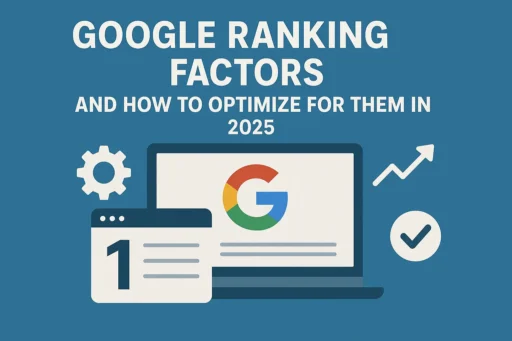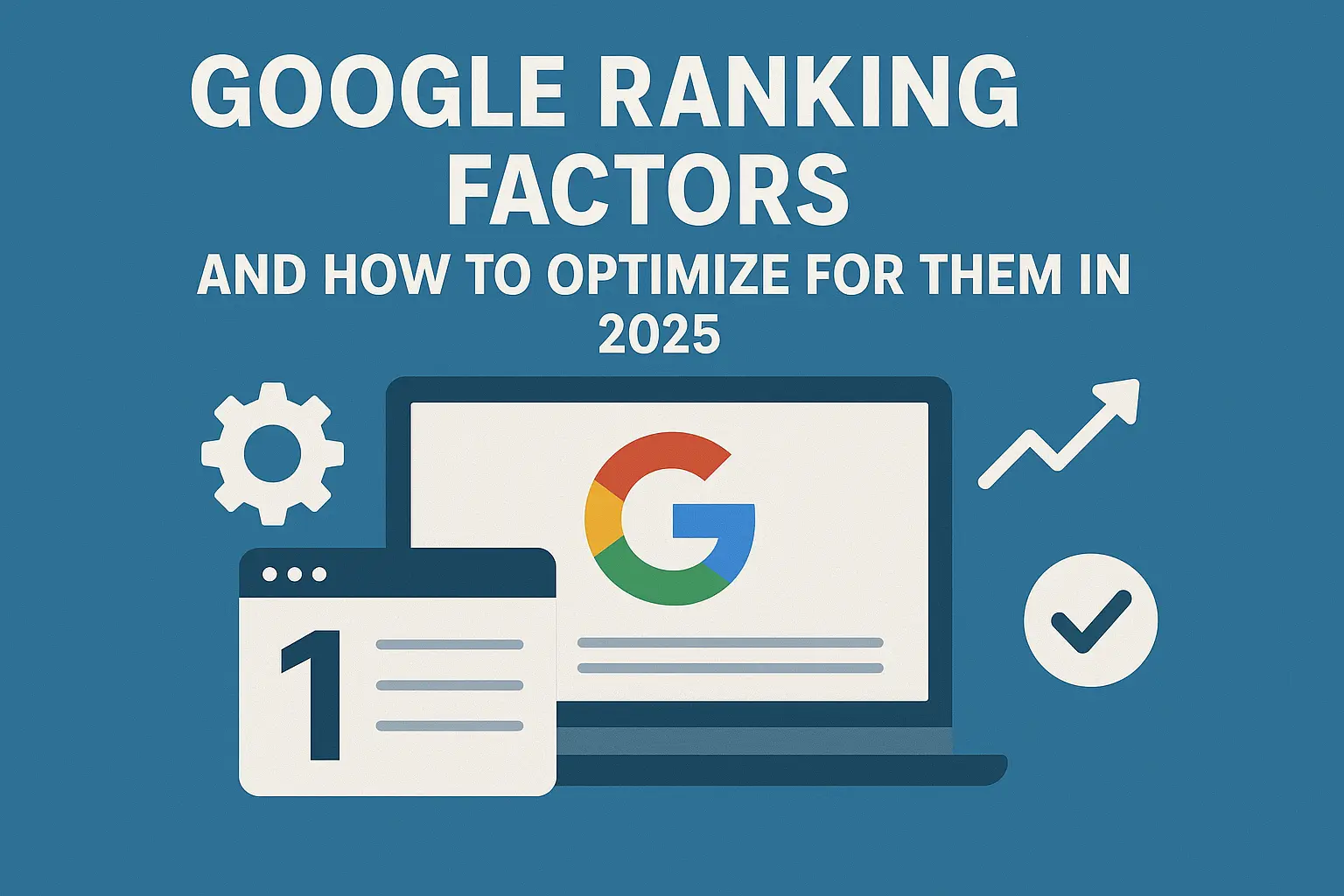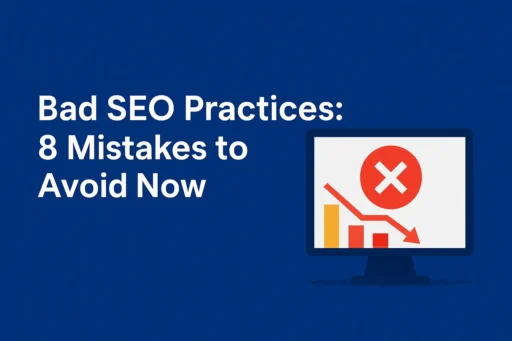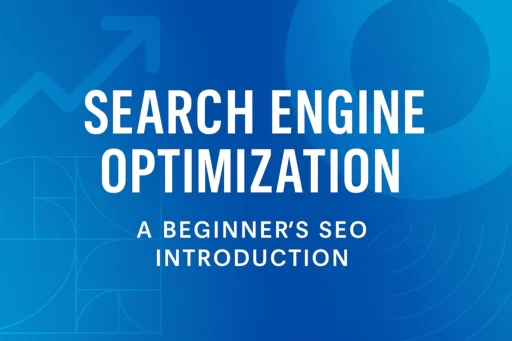Google ranking factors have become more sophisticated than ever in 2025, with AI-driven updates and a greater emphasis on user experience reshaping how websites compete for visibility. At Search Savvy, we’ve analyzed the latest algorithm changes to help you understand what truly matters for achieving top rankings. Whether you’re a business owner, digital marketer, or content creator, mastering these ranking signals is essential for staying competitive in today’s search landscape.
Google Ranking continues to evolve beyond simple keyword optimization and backlinks. The search giant now evaluates websites through a complex framework that prioritizes content quality, technical performance, and user satisfaction. In this comprehensive guide, Search Savvy breaks down the most critical ranking factors for 2025 and provides actionable strategies to optimize your website for better visibility and organic traffic.
What Are Google Ranking Factors and Why Do They Matter in 2025?
Google Ranking Factors are the variables that search engines use to determine where your website appears in search results. While Google has never officially disclosed all its ranking criteria, industry experts estimate there are over 200 different signals that influence rankings. However, not all factors carry equal weight.
At Search Savvy, we focus on helping clients understand that these factors exist on a spectrum-from confirmed ranking signals to those that indirectly support your search performance. In 2025, Google’s algorithms have become increasingly sophisticated at identifying content that genuinely serves user needs rather than content created solely for search engines.
The importance of understanding Google Ranking Factors cannot be overstated. Websites that rank higher on search engines don’t just rely on keyword stuffing or backlinks anymore – AI integration, user experience enhancements, and content relevance are taking center stage. This shift means that successful SEO in 2025 requires a holistic approach that balances technical excellence with authentic, valuable content creation.
How Does Google Ranking Work in 2025?
Google Ranking operates through a three-stage process that determines which pages appear for specific search queries and in what order. Understanding this process is fundamental to optimizing your website effectively.
The ranking process involves: Crawling – Google bots scan web pages for content and structure; Indexing – The scanned pages are stored in Google’s database; and Ranking – Google’s algorithm evaluates indexed pages based on SEO ranking factors and determines their position in search results.
In 2025, Google’s ranking systems have become more nuanced. The search engine doesn’t simply count keywords or backlinks-it uses artificial intelligence and machine learning to understand context, user intent, and content quality. This means your website must satisfy both algorithmic requirements and genuine user needs to achieve and maintain top rankings.
What Are the Most Important Google Ranking Factors in 2025?
Content Quality and Relevance: The Foundation of Google Ranking
Google Ranking Factors start with content-the single most critical element of your SEO strategy. Content remains the most crucial ranking factor, with Google prioritizing high-quality, in-depth, and relevant content that aligns with user intent.
Research shows that 91% of webpages get zero organic traffic due to poor content, while articles exceeding 2,000 words rank higher in search results. This data underscores the importance of creating comprehensive, valuable content rather than thin, superficial pages.
At Search Savvy, we recommend focusing on these content optimization strategies:
- Create Long-Form, Comprehensive Content: Aim for in-depth articles that thoroughly cover your topic rather than surface-level overviews
- Match User Search Intent: Understand whether users are looking for information, products, or solutions, and tailor your content accordingly
- Use Keywords Naturally: Incorporate Google Ranking Factors-related keywords organically throughout your content without forced repetition
- Implement Semantic SEO: Optimize for related terms and search intent variations to demonstrate topical authority
Google Ranking depends heavily on how well your content answers user queries. How well your content fits a user’s search intent is an important ranking factor for Google, with search intent referring to what a person is trying to find when they search.
Experience, Expertise, Authoritativeness, and Trustworthiness (E-E-A-T)
Google Ranking Factors now heavily emphasize E-E-A-T, Google’s framework for evaluating content credibility. E-E-A-T stands for Experience, Expertise, Authoritativeness, and Trustworthiness, with trustworthiness mattering most to Google-you can have experience, expertise, and authority, but if users can’t trust your content, Google won’t rank it highly.
While E-E-A-T isn’t technically a direct ranking factor, it influences multiple signals that Google’s algorithms do measure. In 2025, several factors make E-E-A-T even more important: AI content flooding the internet has caused Google to double down on identifying content that demonstrates genuine human experience and expertise, while growing concern about misinformation has pushed Google to prioritize trustworthy sources, especially for YMYL topics.
According to Search Savvy’s analysis, strengthening your E-E-A-T requires:
- Demonstrate First-Hand Experience: Share personal insights, case studies, and real-world examples
- Showcase Expertise: Create content that reflects deep knowledge and understanding of your subject
- Build Authoritativeness: Earn backlinks from reputable websites and get cited by industry leaders
- Establish Trustworthiness: Use HTTPS, display clear contact information, and maintain transparent privacy policies
Experience now carries more weight than ever before, with Google aggressively favoring content that demonstrates real-world, firsthand knowledge-a travel blog written by someone who actually visited the destinations will significantly outrank one written by someone who just researched online.
Backlinks and Domain Authority: The Currency of Google Ranking
Google Ranking success requires high-quality backlinks that signal your website’s credibility and authority. Building backlinks from reputable and authoritative websites helps establish trust and improves search rankings, but link quality is more important than quantity.
Backlinks are one of the most powerful ranking signals and continue to be a top-ranking factor in 2025-when high-authority websites link back to your site, it signals to Google that your content is valuable and trustworthy.
At Search Savvy, we emphasize that not all backlinks are created equal. A single link from a respected industry publication carries far more weight than dozens of links from low-quality directories. Focus your link-building efforts on:
- Creating linkable assets like original research, comprehensive guides, and valuable tools
- Guest posting on authoritative industry websites
- Building relationships with journalists and influencers in your niche
- Reclaiming lost backlinks by reaching out to sites with broken links
Google has indicated that factors like volume and quality of links to your domain and to your site’s individual pages represent a very important basket of ranking factors to keep in mind in 2025.
Technical SEO and Site Architecture
Google Ranking depends significantly on how well search engines can crawl, index, and understand your website. Technical elements such as site speed, mobile-friendliness, and technical SEO audits help materially in the way search engines crawl, index, and rank a website.
Technical SEO encompasses several critical factors:
- Site Speed and Performance: Fast-loading pages improve user experience and rankings
- Mobile Optimization: With mobile-first indexing, your mobile site performance is paramount
- Structured Data: Implementing schema markup helps Google understand your content
- XML Sitemaps and Robots.txt: Ensure proper crawling and indexing of your pages
- Clean URL Structure: Use descriptive, keyword-rich URLs that clearly indicate page content
Core Web Vitals: The User Experience Benchmark
Google Ranking Factors in 2025 include Core Web Vitals-three specific metrics that measure loading speed, interactivity, and visual stability. Core Web Vitals measure real-world user experience, with key metrics including Largest Contentful Paint (LCP) under 2.5 seconds, Interaction to Next Paint (INP) under 200 milliseconds, and Cumulative Layout Shift (CLS) under 0.1.
Core Web Vitals affect SEO rankings by influencing Google’s Page Experience signals, with faster, more stable sites ranking higher than slow, clunky ones. However, it’s important to maintain perspective. Google’s John Mueller emphasized that relevance is still by far much more important-just because your website is faster with regards to Core Web Vitals than some competitors doesn’t necessarily mean you will jump to position number one in the search results.
Search Savvy recommends these Core Web Vitals optimizations:
- Improve LCP: Optimize images, reduce server response times, and eliminate render-blocking resources
- Enhance INP: Minimize JavaScript, limit third-party scripts, and optimize frameworks
- Stabilize CLS: Set size attributes for images and videos to prevent layout shifts
In 2025, Core Web Vitals remain one of the most critical ranking factors in Google’s algorithm, with INP replacing the older First Input Delay (FID) metric.
Mobile-First Optimization: Essential for Google Ranking
Google Ranking in 2025 prioritizes mobile-optimized websites. With over 60% of global online traffic coming from mobile devices, Google now predominantly uses mobile-first indexing, meaning the mobile version of your site is the primary basis for how your content is ranked and indexed.
Google favors websites that are mobile-friendly, with sites optimized for mobile devices including responsive design and easy navigation generally ranking higher than those with poor mobile performance.
Mobile optimization extends beyond responsive design. Your mobile site should offer:
- Fast loading times on cellular networks
- Touch-friendly navigation with appropriately sized buttons
- Readable text without zooming
- Accessible content without horizontal scrolling
- Optimized images for mobile bandwidth
Why Is Topical Authority Important for Google Ranking in 2025?
Google Ranking success increasingly depends on establishing yourself as an authority within your niche. Google prioritizes topic clusters, with Google’s patents explicitly using the notion of “topical clusters” when weighting links-when a topical cluster associated with the source document is related to a topical cluster associated with the target document, the link has a higher probability of being selected.
Building topical authority requires:
- Creating comprehensive content clusters around core topics in your industry
- Interlinking related content to demonstrate subject matter depth
- Consistently publishing high-quality content on related subjects
- Becoming a go-to resource for specific topics rather than covering everything superficially
How Can You Optimize Internal Linking for Better Google Ranking?
Google Ranking benefits significantly from strategic internal linking. Internal links help Google and your visitors understand your content and its value-adding a link from a page with authority to a relevant page on your site helps people find it and also gives some authority to the other page, making that second page rank higher in search engines.
Best practices for internal linking include:
- Linking from high-authority pages to newer or underperforming content
- Using descriptive anchor text that includes relevant keywords
- Creating a logical site structure with clear hierarchies
- Ensuring important pages are never more than three clicks from your homepage
What Role Does Video Content Play in Google Ranking?
Google Ranking factors in 2025 include multimedia content, particularly video. Google ranks websites with informative and engaging embedded videos higher on SERPs, with video content needing to be informative, relevant, and SEO-optimized.
To optimize video content:
- Create transcripts to make video content crawlable
- Use descriptive titles and descriptions with relevant keywords
- Implement video schema markup
- Host videos on platforms that Google can easily index
- Ensure videos are relevant to page content and user intent
How Important Is Page Speed for Google Ranking in 2025?
Google Ranking depends partly on how quickly your pages load. Among 200+ different search engine ranking factors, website page loading speed is crucial-Google included page loading time to its Core Web Vitals in May 2021, and even in 2025, it’s still part of the Google Ranking Algorithm.
Studies confirm that a 1-second delay can reduce conversions by up to 7%, while 53% of mobile users abandon pages that take over 3 seconds to load.
Improve your page speed by:
- Compressing and optimizing images
- Minifying CSS, JavaScript, and HTML
- Leveraging browser caching
- Using a content delivery network (CDN)
- Choosing quality hosting providers
What Are User Engagement Signals and How Do They Affect Google Ranking?
Google Ranking algorithms consider how users interact with your website. Through leaked documents and testimony, Google has admitted that metrics like click-through rate and how a searcher interacts with a search results page are ranking factors for Google.
Key user engagement signals include:
- Click-Through Rate (CTR): The percentage of users who click your listing in search results
- Dwell Time: How long users stay on your page before returning to search results
- Bounce Rate: The percentage of visitors who leave without interacting
- Pages Per Session: The number of pages users view during a visit
To improve engagement signals:
- Write compelling meta titles and descriptions that accurately represent your content
- Use engaging introductions that hook readers immediately
- Format content for easy scanning with subheadings, bullet points, and short paragraphs
- Include clear calls-to-action that guide users to related content
How Can Social Signals Impact Google Ranking?
Google Ranking may be influenced by social media engagement, though the relationship is complex. Engaged users sharing and interacting with your content signals credibility and popularity to Google, with sites with high social engagement ranking 10% higher in SERPs.
While social media shares aren’t direct ranking factors, they contribute to:
- Increased content visibility and traffic
- Natural backlink acquisition as more people discover your content
- Brand awareness and authority building
- Faster content indexing through social signals
People Also Ask: Common Questions About Google Ranking Factors
How many ranking factors does Google use in 2025?
Google Ranking algorithms consider over 200 different factors when determining search positions, though Google has never officially confirmed the exact number. However, not all factors carry equal weight. Content quality, backlinks, technical SEO, and user experience represent the most significant categories of ranking signals in 2025.
Is E-E-A-T a direct Google ranking factor?
E-E-A-T (Experience, Expertise, Authoritativeness, and Trustworthiness) is not a direct ranking factor, but it influences multiple signals that Google’s algorithms do measure. Google uses various factors to identify content demonstrating E-E-A-T qualities, which then contribute to rankings. This distinction is important-focus on creating genuinely valuable content rather than trying to game an “E-E-A-T score.”
Do Core Web Vitals guarantee higher Google rankings?
Core Web Vitals are confirmed ranking factors, but they won’t automatically boost your rankings if your content is irrelevant or low-quality. Google prioritizes content relevance and quality above technical performance. However, when competing pages offer similar value, Core Web Vitals can serve as the tiebreaker that determines which page ranks higher.
How important are backlinks for Google Ranking in 2025?
Backlinks remain one of the most powerful ranking signals in 2025. Quality matters far more than quantity-a single link from an authoritative, relevant website carries more weight than dozens of low-quality links. Focus on earning natural backlinks through exceptional content rather than purchasing links or participating in link schemes, which can result in penalties.
Can AI-generated content rank well in Google?
AI-generated content can rank well if it meets Google’s quality standards and demonstrates genuine value to users. However, Google increasingly identifies and devalues content that lacks human insight, personal experience, or original thinking. The most successful approach combines AI assistance for research and structure with human expertise for insights, examples, and authentic perspective.
What is the single most important Google Ranking factor?
Content quality and relevance represent the most critical ranking factor in 2025. While technical SEO, backlinks, and user experience all matter significantly, they cannot compensate for content that fails to satisfy user intent or provide genuine value. Your content must answer the user’s query comprehensively and accurately to achieve and maintain top rankings.
Final Thoughts: Mastering Google Ranking Factors in 2025
Google Ranking Factors continue to evolve toward prioritizing genuine user value over manipulation tactics. The websites that succeed in 2025 are those that focus on creating exceptional content, providing outstanding user experiences, and building authentic authority within their niches.
At Search Savvy, we believe the key to long-term SEO success lies in understanding that Google’s ultimate goal is connecting users with the most helpful, relevant, and trustworthy content. Rather than chasing algorithmic tricks or shortcuts, invest in:
- Creating comprehensive, experience-driven content that genuinely helps your audience
- Building a technically sound website that loads quickly and works flawlessly on all devices
- Earning backlinks naturally through valuable content and relationship building
- Establishing your expertise and authority through consistent, high-quality publishing
- Prioritizing user experience in every aspect of your website design and functionality
The landscape of search engine optimization may seem complex, but the fundamental principles remain straightforward: create value for users, make your content accessible to search engines, and build trust with both algorithms and people.
By implementing the strategies outlined in this guide and staying informed about Google’s continued algorithm updates, you’ll position your website for sustained visibility and growth. Remember that SEO is a marathon, not a sprint-consistent effort and strategic optimization will compound over time to deliver impressive results.
Ready to improve your Google Ranking? The team at Search Savvy specializes in comprehensive SEO strategies tailored to the latest algorithm updates. Contact us today to learn how we can help your website achieve top rankings and drive meaningful organic traffic to your business.
Useful Resources:







